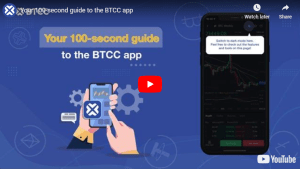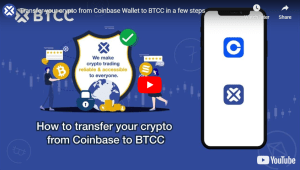ZenGo Wallet Review And How-to Guide
ZenGo is an innovative crypto wallet which is an integrated solution for storing and managing users’ digital assets. The wallet features a robust user interface and utilizes multiple safety mechanisms to ensure asset security.
This guide will walk through ZenGo wallet’s key functions and review all the information about the platform’s available assets, security protocols, transaction fees, and more.
A Brief Glance at ZenGo Wallet
ZenGo is a highly secure crypto wallet developed by the KZen network – an Israel-based technology company focused on building blockchain networks. ZenGo was founded in 2018 with the aim of providing users with an easy-to-use crypto wallet.
ZenGo is an all-in-one crypto hub, a multi-chain network that gives users access to Web3 protocols, including non-fungible tokens (NFTs), Decentralized Finance (DeFi), blockchain games and Decentralized Applications (DApps). Backed by Multiparty Computation (MPC) technology – ZenGo is the first Web 3 cryptocurrency wallet that is protected against account takeover and private key hacks.
With the use of 3-factor Authentication (3FA), ZenGo’s security model significantly reduces the risk of unauthorized access compared to most wallets that use 2FA protection. Backed with 24/7 customer support and service, ZenGo is a great potential choice for starters.
This is possible because the platform completely eliminates private keys altogether for two separately created mathematical secret shares. Until now, Web3 functions have only been accessible through non-custodial wallets – which can be complicated to use. However, ZenGo has integrated with WalletConnect on Ethereum to give users simple access to a wide range of DeFi and Web3 protocols.
Using ZenGo, users can purchase Bitcoin, Ether and some of the largest cryptocurrencies in over 180 countries. With over 500,000 users joining this crypto wallet, users can start investing in a variety of digital assets. In addition, ZenGo offers a variety of additional features that may not be supported by regular centralized exchanges.
Users can exchange tokens, earn interest on their holdings, and even use ZenGo to convert their paychecks into cryptocurrency. With a minimum investment of $85, we believe ZenGo is one of the best cryptocurrency wallets for users to look into.
Advantages And Downsides of ZenGo Wallets
Users should weigh the pros and cons carefully before using the best crypto wallet for their investments. Therefore, we have listed below some of the pros and cons of using ZenGo wallets.
Advantages
- Easy User-Friendly Interface
- No risk of private keys hacks
- Direct access tomulti-chain DeFi & Web3 protocols
- 24/7 customer support and service
- 3-Factor Authentication (3FA)Verification
Downsides
- Some wallet functions are not supported in all 180+ countries
- High minimum investment of $85
What Coins Are Supported by Zengo Wallet?
ZenGo may be one of the few crypto wallets with direct access to Web3 functionality, but crypto trading and storage is the platform’s first priority. Users can buy, trade and hold a diverse list of 76 cryptocurrencies. In addition to BTC and ETH, users can invest in meme tokens and purchase Dogecoin, Shiba Inu, and more.
Since ZenGo uses WalletConnect to provide multi-chain support with Ethereum, users can purchase ERC-20 tokens such as SUSHI, LRC, IOST and many more assets. The following is a list of the 10 biggest cryptocurrencies (by market cap) that can be traded with ZenGo:
- Bitcoin (BTC)
- Ethereum (ETH)
- Tether (USDT)
- USD Coin (USDC)
- Binance Coin (BNB)
- FTX Token (FTT)
- Dogecoin (DOGE)
- Polygon (MATIC)
- Uniswap (UNI)
- Dai (DAI)
Transaction Fees of ZenGo Wallet
The fees associated are an important criterion for reviewing any crypto wallet. Using ZenGo, users may need to pay the following related fees:
- Spread– This difference between the spot market price and order price is used to cover the risk of volatility. Spread fees vary from transaction to transaction.
- Handling Fee– This is the fee paid to the operators involved when purchasing, selling and trading services. For example, when purchasing crypto through a bank transfer via MoonPay, a 99% handling fee is charged.
- Network Fee– This fee is paid to the blockchain network operators and varies depending on network conditions. ZenGo does not charge any network fees during this process.
ZenGo Wallet’s Unique Security Guarantee
Safety and security is one of the critical features that ZenGo wallet strives to provide. Crypto wallets have been designed to provide users with a simple and secure solution for storing digital assets in one place. ZenGo has an advantage over its competitors because it provides users with the following unique security measures and protocols:
1.Three Authentication Factors
ZenGo’s security model has been designed in such a way that users must set up 3 authentication factors to secure their accounts:
- Email Verification – When registeringwith ZenGo, investors are sent a unique “magic mail” to their registered email ID. They can use the link to connect with their ZenGo wallets.
- Recovery File– These files are used to store decryption codes associated with the users’ account. The recovery file is stored in the user’s personal cloud service.
- Face ID Scan– Finally, users must pass a face scan test to use their accounts. This is an encrypted mathematical representation of an individual’s face stored on the ZenGo servers.
2. Single Site of Failure Is Eliminated
Zengo uses MPC-based cryptography – a protocol for sharing computation across multiple parties, ensuring that no individual parties can see the other party’s data. This process replaces the need to have a private key.
Instead of private keys, ZenGo provides two independently created mathematical secret shares. One code is shared to the users’ mobile devices, while the other is stored on the platform’s servers. Therefore, even if something goes wrong with one of the shares, there is no single point of failure.
On top of this, ZenGo has deployed Chill Storage – an e-waller service protocol. Using Chill Storage, users can access their money even if ZenGo were to stop working for some reason. As a result, ZenGo is one of the most secure cryptocurrency wallets in the industry.
Prominent Amazing Features of ZenGo Wallet
We will now examine some of the outstanding functions available to users when using the ZenGo wallet.
ZenGo Multi-Chain Trading
In addition to purchasing and selling cryptocurrencies, ZenGo enables users to trade cryptocurrencies across blockchains at any time. While most of the best crypto exchanges support a single network, such as BTC or ETH, ZenGo is a multi-chain wallet that allows users to trade multiple assets across blockchains.
Investors can trade bitcoin with Ether and dogcoin with stablecoins like USDC. In total, ZenGo users have more than 1,000 trading options. This is beneficial because users don’t need to set up multiple wallets to trade across different blockchains.
ZenGo Lending or Staking
ZenGo is powered by Nexo, one of the largest lenders in digital finance, and allows users to access crypto interest accounts. Despite the volatility of cryptocurrencies, ZenGo interest is a great feature to access for users looking to beat inflation or earn passive income.
Users have access to two features – lending or staking option. The former involves lending your crypto assets to Nexo – a registered crypto lending financial institution. Interests are calculated and added to a user’s account on a daily basis.
With crypto pledges, investors can earn interest by locking in their assets for a specific period of time. For example, users can earn up to 8% Annual Percentage Yield (APY) on TUSD, USDT and USDC. In addition, investors can earn 3% APY on BTC (up to $25,000 in deposits).
Access to All Web 3-Based Protocols
ZenGo advertises itself as one of the few crypto wallets that allows users to access multiple DeFi protocols. With ZenGo, investors can access NFTs on multiple blockchains, as well as thousands of DApps and GameFi features on platforms like Sandbox.
Users can do this by linking WalletConnect to ZenGo, which gives them access to all the Web 3-based protocols deployed on the Ethereum.
How to Transfer Funds from Other Wallets into ZenGo Wallet
To transfer funds from another wallet to your ZenGo wallet, users can follow these steps:
- On the home screen, swipe an asset to the right or tap on the asset
- Your wallet address and QR code will be displayed on the screen
- Copy the wallet address and enter it into a different wallet or exchange
- You can enter this address when sending cryptocurrency to ZenGo. Once the transfer is complete, the platform will verify the user.
A Step-by-Step Guide to Starting Your Zengo Wallet
Unlike other crypto wallets, ZenGo does not require users to memorize a complex seed phrase or fill out a KYC form. Therefore, users can begin trading cryptocurrencies on ZenGo in just a few easy steps:
Step one: Download the ZenGo Crypto Wallet
The first step for users is to download the ZenGo wallet via iOS or Android.

Users can scan the code above to begin the download process.
Step Two: Confirm Your Email Address
After downloading the ZenGo wallet application, users must enter their email address. ZenGo will send a “Magic Link” to the email address provided; confirm the link to continue.
Step 3: Enable Face ID Verification
ZenGo does not provide users with a seed phrase, they use biometric encryption through Face ID verification to grant users account access.

Click ‘Enable Face ID’ bottom and set up your face ID verification with ZenGo.
Step 4: Start Your ZenGo Trading
After verifying the account, users can begin testing ZenGo wallet features.

Users can try to buy cryptocurrency directly, transfer cryptocurrency from another wallet, or explore the app to to become familiar with these features.
In Conclusion – Is Zengo Wallet a Good One to Pick?
This guide has conducted an in-depth analysis of the popular crypto wallet, ZenGo, which provides a user experience unlike any other platform in the space.
As a popular crypto wallet with over 500,000 downloads and users in 180+ countries, ZenGo enables users to buy over 70 cryptocurrencies, earn interest, swap tokens and access multiple features with ZenGo. The wallet provides users with an easy-to-use interface that allows anyone to buy and sell cryptocurrencies in a matter of minutes.
It features high-quality security protocols that eliminate the need for users to go through a complex KYC process, or remember private keys or seed phrases. Instead, ZenGo uses biometric encryption as part of its 3FA process. Users can complete a face scan and provide their email address to open their account.
In addition, because ZenGo is a multi-chain platform, users can access multiple DeFi and crypto protocols such as DApps, staking features, swapping access and more with ZenGo. Investors can easily exchange cryptocurrencies on ZenGo without setting up different wallets.
To sum up, if you’re looking for a wallet that can hold all your cryptocurrencies across different blockchain networks, we highly recommend ZenGo.
Read More:
Terra LUNA 2.0 And LUNA Classic (LUNC): Get It All in One Guide










